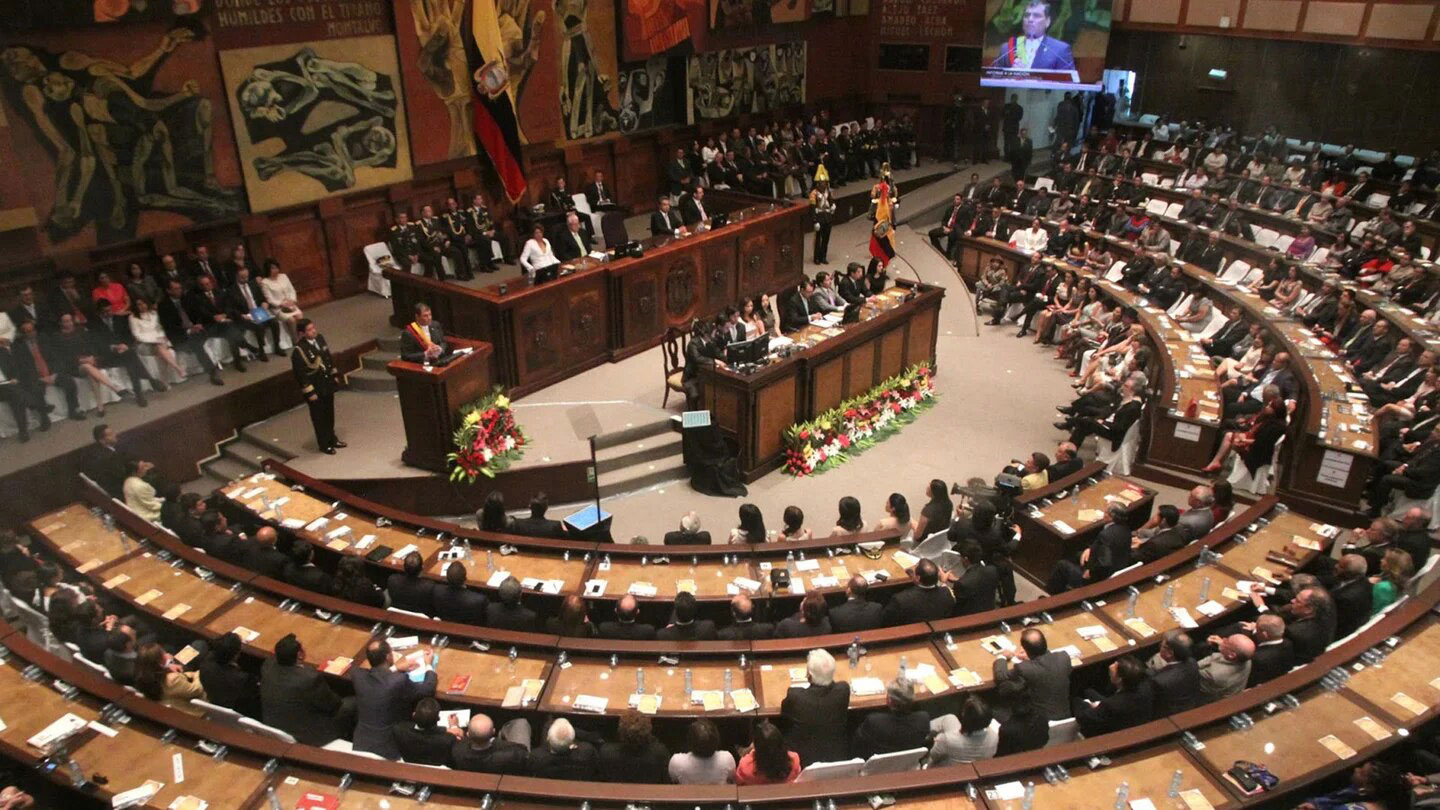The 5 different parties of the National Assembly are in dialogue to build a majority of at least 70 votes, enough to approve laws and resolutions. Daniel Noboa’s government has two options to seek alliances.
Securing a majority in the National Assembly is the top priority for Daniel Noboa’s government as they gear up to enact crucial legislation and resolutions. The clock is ticking, with the inaugural session scheduled for November 20th, and the fate of alliances and power dynamics in the assembly hangs in the balance.
The focus of these discussions revolves primarily around the ruling party, the ADN bench, which managed to secure 14 seats. To push through their ambitious agenda, President-elect Daniel Noboa is keen on building alliances, a necessity given that he anticipates monthly economic initiatives.
As the dust settles after the recent elections, it’s unclear which path the ADN bench will take regarding alliances. Two distinct scenarios are emerging: one with an alliance with Correismo and another without them. However, it’s important to note that even if they do form an alliance, it might only be temporary, leaving the government vulnerable to shifting majorities, similar to the challenges Guillermo Lasso faced in the past.
To better understand the dynamics at play, it’s essential to grasp the different types of majorities within the Legislative Function Law. There are three main categories:
- Simple Majority: This requires half plus one of the assembly members present at a session.
- Absolute Majority: To attain this, they need half plus one of the assembly members that make up the Plenary, which translates to 70 votes.
- Qualified Majority: The most challenging, requiring two-thirds of the assembly members that make up the Plenary, which amounts to 91 votes.
Each type of majority serves various purposes. The most favorable outcome for the ADN bench would be securing a qualified majority. It’s a powerful tool, essential for declaring the incapacity of a president or ratifying presidential veto texts. However, this is a complex scenario, given the reluctance of Revolución Ciudadana and Construye to work in alliance, making it nearly impossible to gather 91 votes.
The more achievable goal is an absolute majority. With 71 votes in their pocket, the government can approve bills, enact legal reforms (both urgent and non-economic), handle executive vetoes, and determine the Assembly’s leadership. Therefore, the ADN’s top priority is forming an alliance that secures this absolute majority.
The two scenarios facing the ruling party are:
- Alliance with Correismo: This option could provide the government with approximately 65 votes. To reach the coveted absolute majority, they would need just a few additional supporters, potentially those legislators who have not yet aligned themselves with one of the five benches.
- Alliance without Correismo: In this case, the ADN has garnered the support of two benches: the PSC (with an estimated 16 to 18 legislators) and the new Political Ethics bench (comprising 14 to 19 members). This coalition would bring together around 44 votes, still short of the 71 needed for an absolute majority. However, if Construye were to join this coalition, they could secure the required number of votes.
In this intricate web of political maneuvering, the PSC is eyeing the presidency of the Assembly and has already begun promoting Henry Kronfle’s candidacy. This move signals a notable shift from their previous alliance with Correismo in the dissolved Assembly, as they now distance themselves from their former partners.
As the inaugural session of the National Assembly looms, the political landscape remains uncertain. The final composition of alliances and the configuration of the majority will likely only become clear on that critical day.
In the meantime, negotiations, discussions, and behind-the-scenes maneuvering will continue as the different parties strive to secure their positions in this complex political puzzle.


0 Comments